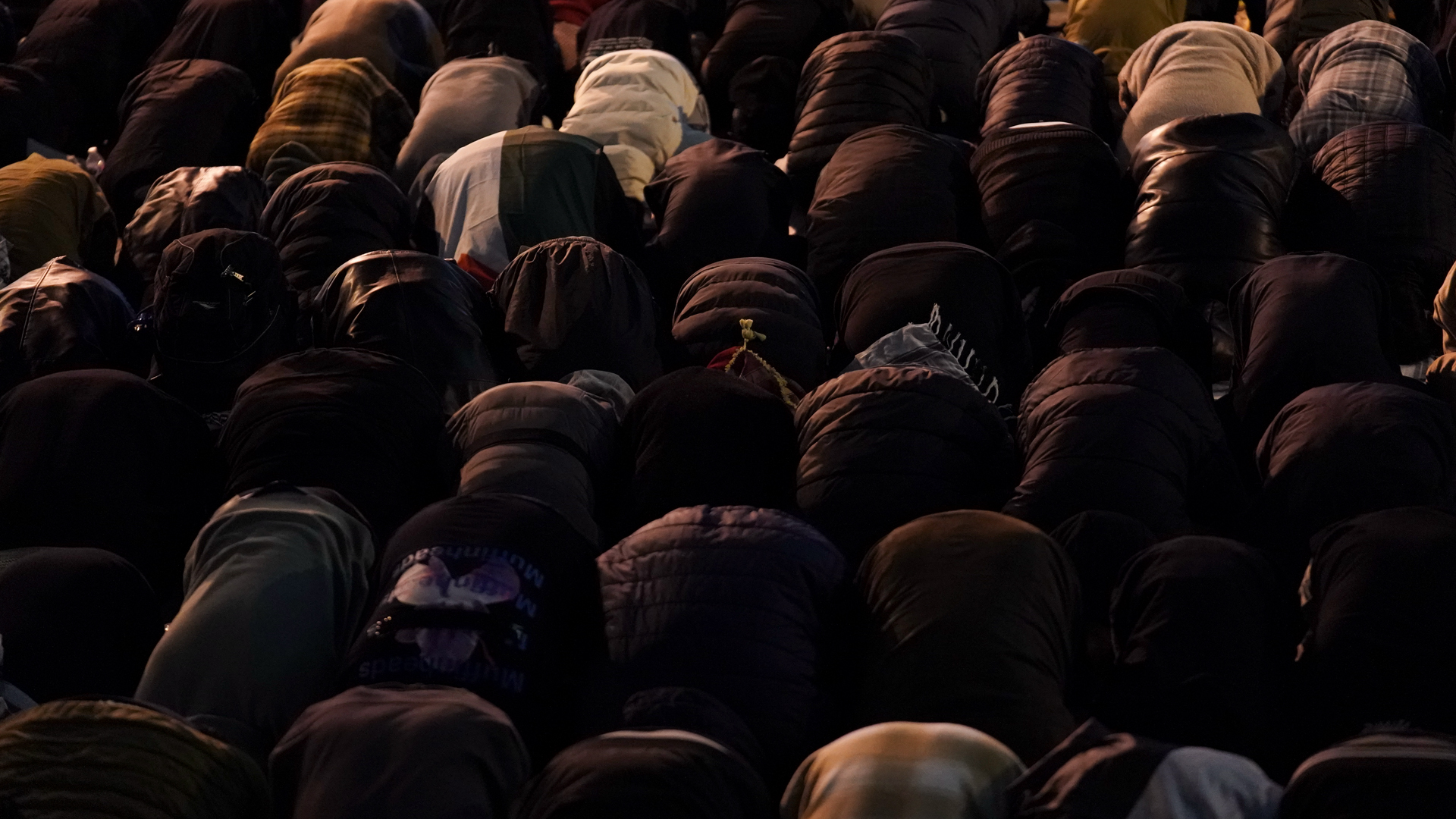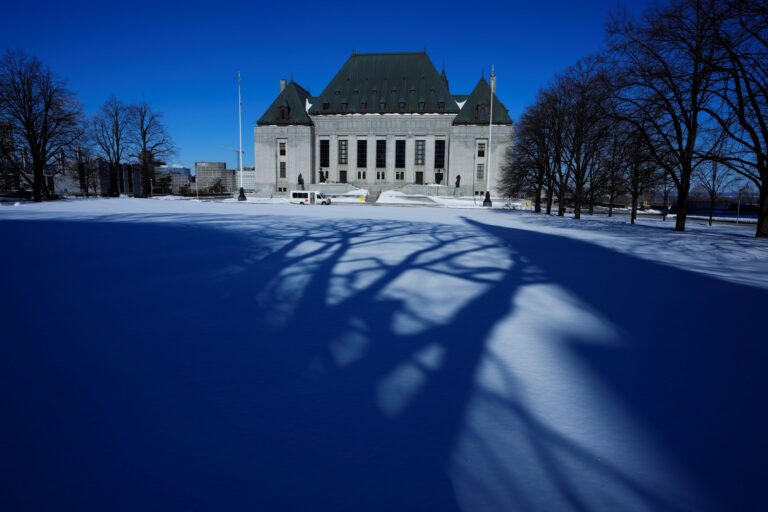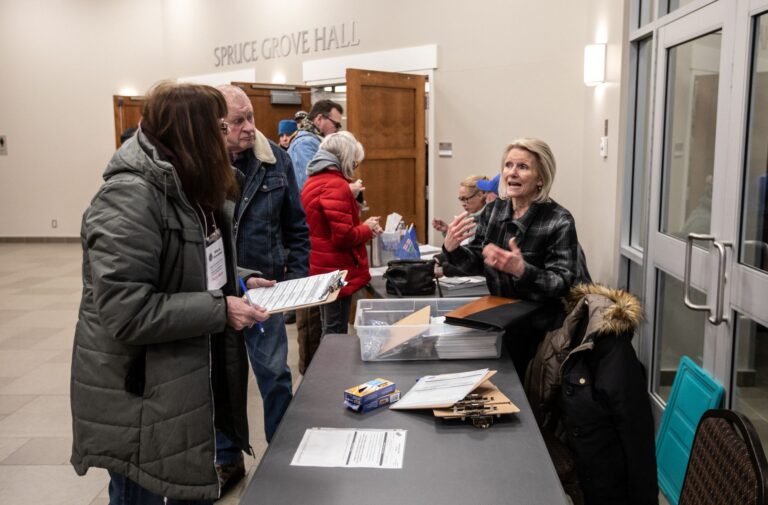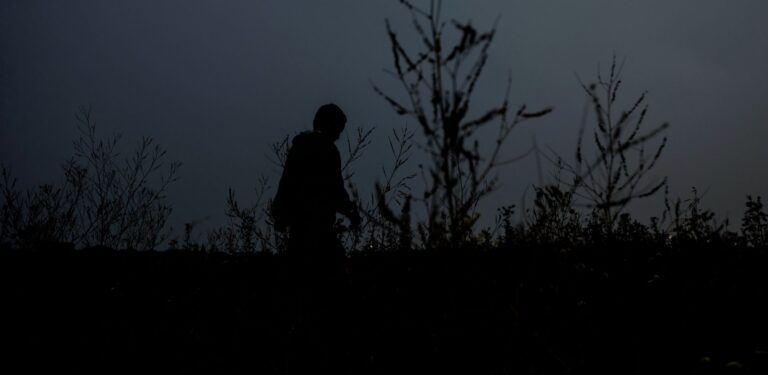(Version francaise disponible ici)
Quebec’s proposed ban on public prayers goes beyond laïcité, the province’s model of secularism,and into the realm of the language of religion. For a society with deep roots in religion, religious literacy is an important tool for understanding in past heritage, engaging with present tensions and fostering future cohesion.
Quebec is a unique and distinct society; it is shaped by its Catholic heritage and complex relationship with religion, immigration, language and integration. The province’s laïcité was solidified during the Quiet Revolution and is being reinforced by laws such as Bill 21, which prohibits teachers, police officers, judges and lawyers in Quebec from wearing religious garb and symbols.
The challenge is how to balance this laïcité form of state neutrality with the increasingly diverse identities of its population. Quebec’s experience with religion remains complex, and religious literacy remains relevant in fostering understanding and social cohesion.
Whether approached through devotion, cultural identity or intellectual curiosity, religious literacy strengthens Quebec’s distinct nature as it supports a path toward inclusivity and cohesion. Quebec and Canada should integrate religious literacy into educational curricula and public awareness initiatives to empower citizens to navigate diversity with empathy and awareness.
What is religious literacy?
Religious literacy involves the knowledge, skills and lens to understand diverse religious, spiritual and secular worldviews, extending beyond basic beliefs. As a civic tool, it also fosters an academic approach to empathize with others’ beliefs, enhancing societal understanding and cohesion in Quebec, where debates about religion’s role in public life are ongoing and often contentious.
Religious, spiritual and secular traditions influence worldviews, cultures and moral frameworks which, in turn, inform political decisions and social movements. In Quebec, for instance, the Catholic Church controlled education and health care until the secularization reforms following the Quiet Revolution.
Today, religious literacy is crucial for understanding how religious traditions continue to shape social and political dynamics such as debates around religious accommodations or the enforcement of Québécois laïcité.
In his book Value(s): Building a Better World for All, Canadian Prime Minister Mark Carney recalls how Pope Francis once described the modern marketplace as like grappa, a strong spirit distilled from grape skins, reducing humanity to something narrow. Francis insisted that our objective is to “turn the market back into humanity” by restoring the richness and diversity of values.
This Catholic imagery reflects the enduring influence of religious thought in shaping visions of justice, solidarity and economic life, showing how Catholicism has historically influenced Quebec labour movements and co-operative institutions such as the Desjardins Group.
By comparison, U.S. Vice-President JD Vance’s journey from atheism to Catholicism shows how religious commitments can also guide political and economic worldviews, demonstrating how faith continues to matter in public life.
Religious literacy for everyone
Religious literacy is not limited to faith leaders, scholars, historians or policymakers. It promotes civic well-being and extends to all citizens, including the devout, the religious and the secular, shaping our understanding of identity, culture and existential experiences. Each group engages with religion, spirituality and the secular differently, reflecting Quebec’s diverse social landscape.
For the frequent practitioner: Frequent practitioners are those who engage deeply and regularly with their faith traditions. For them, religious literacy is rooted in intimacy. It means appreciating the verses, rhythms and sounds of one’s faith. For instance, a francophone Catholic might deepen their religious connection by reciting Je vous salue Marie in its traditional French form, tied to Quebec’s linguistic and cultural heritage, rather than a modernized version. This form of literacy transforms theological knowledge into a lived experience, where rituals like attending mass at a historic site like Montreal’s Notre-Dame Basilica resonate with spiritual and cultural significance. Similarly, just hearing the original pronunciation of a prophet’s name, rather than its Anglicized version, can deepen one’s connection to the tradition.
For the religious: For those who identify as religious but may not practise devoutly, such as Quebecers with cultural ties to Catholicism, religious literacy is about understanding the depth and diversity within their tradition. It’s about recognizing that some Orthodox Christians in Quebec celebrate Christmas on January 7, following the Julian calendar, rather than December 25. It involves acknowledging historical shifts or current debates on religious symbols, prayers in schools and public spaces, and the role of religion in society.
This awareness can promote a better personal connection to one’s tradition as well as respect and understanding for fellow citizens, whether they are Catholics or members of Quebec’s growing Sikh or Hindu communities.
For the secular: Secular individuals may not identify with a religious tradition, but their social and cultural environments are often shaped by religious history. Secular Quebecers, who form the majority of the population, are influenced by religious frameworks. The structure of the weekend, rooted in the Christian Sabbath, or statutory holidays like Christmas and Easter, reflect Quebec’s Catholic heritage.
Secularism in Quebec, embodied in laïcité, emerged from a specific historical context: the rejection of clerical control during the Quiet Revolution. Religious literacy helps secular Quebecers understand that neutrality is not belief-free, but rather shaped by historical dialogues and competition with religion. Debates over restricting religious symbols show how secular policies intersect with religious identities. Therefore, religious literacy equips secular individuals to navigate these debates with nuance, fostering empathy for diverse perspectives.
Why does it matter?
In a world where religious and ideological polarization is growing, with three in 10 countries experiencing high levels of restrictions or social hostilities involving religion, religious literacy is not an academic luxury; it is a necessity. Over 84 per cent of the global population identifies with a religion, and, even in Quebec where laïcité is cherished, religion continues to shape values and policies. As the Bouchard-Taylor Commission warned, “Ignorance of religious traditions fosters misunderstanding and social tension.”
Religious literacy enables devout Quebecers to deepen their faith, helps the religious understand their cultural heritage and equips the secular with tools to engage meaningfully in a pluralistic society.
Bill 21 offends the constitutional doctrine of neutrality to religion
Quebec’s Bill 21: Is there room for more than one view of religion in Canada?
Religious literacy addresses Quebec’s challenges with integration and polarization. As the province welcomes newcomers from diverse backgrounds – Muslims, Sikhs, Buddhists and others – understanding their worldviews is critical for social harmony and cohesion. It helps deconstruct stereotypes surrounding religious and cultural practices and encourages constructive dialogue around accommodations. Through mutual understanding of the ABCs of belief systems, Quebecers can bridge divides, whether in cosmopolitan Montreal or rural regions with deep Catholic roots.
To promote religious literacy, Quebec and Canada should integrate it into educational curricula and public awareness initiatives, empowering youth and adults to navigate diversity with empathy and awareness.













